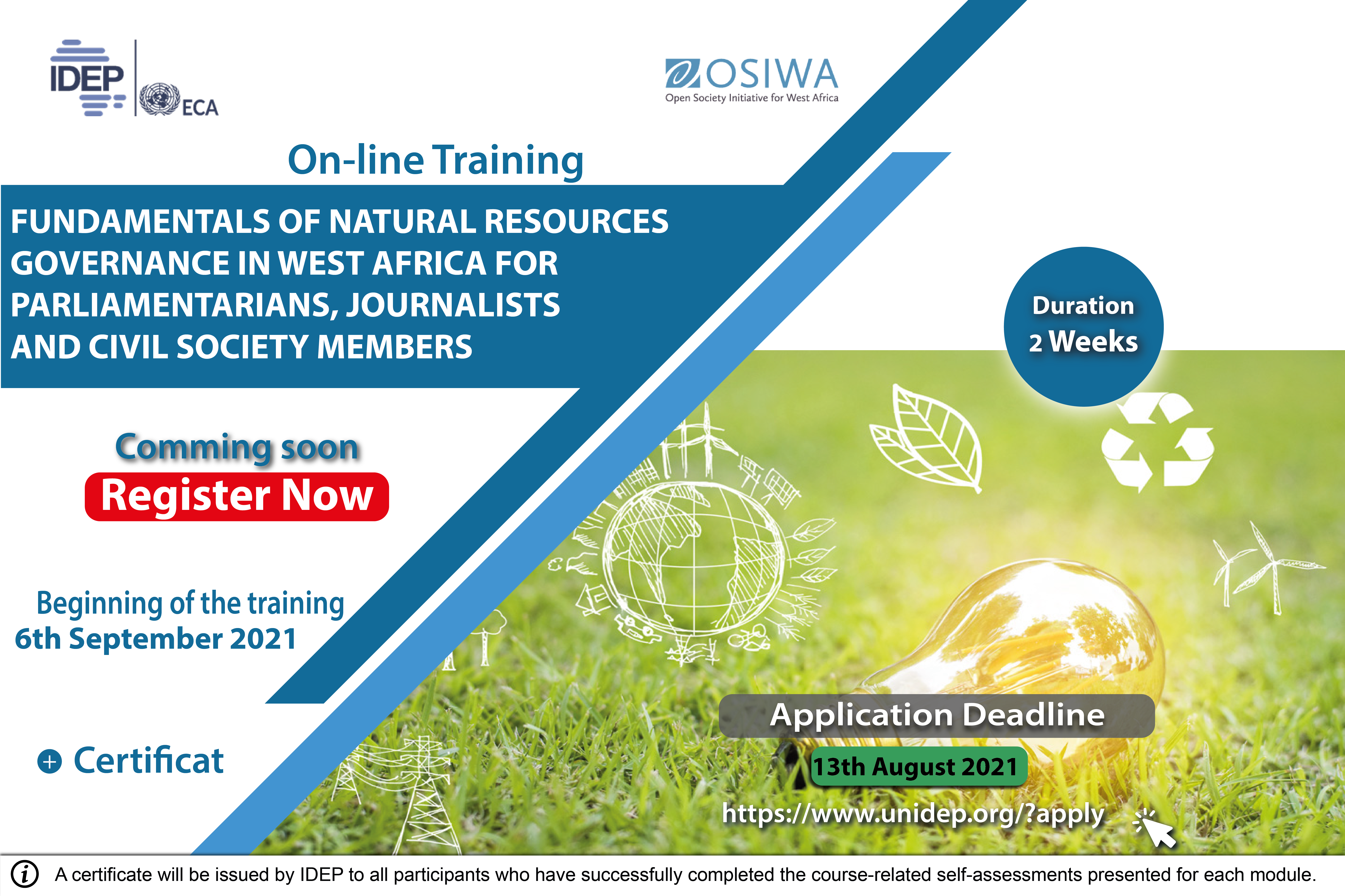FUNDAMENTALS OF NATURAL RESOURCES GOVERNANCE IN WEST AFRICA FOR PARLIAMENTARIANS, JOURNALISTS AND CIVIL SOCIETY MEMBERS
PROGRAM RATIONALE
Given the background and history of weak governance systems in the sector in most parts of the region, the context is characterized by a passive non-state actor community. The challenges in extractive sector are not only technical but also one that is deprived of effective citizen’s participation in monitoring the activities and decision of the state. A concerted effort to open civic space in the region is needed, where citizens, Civil Society Organizations (CSOs) and journalists can hold their government to account for their actions. Until CSOs think thanks, journalists and citizens can use disclosed information for effective public debate and demand accountability from governments, transparency would not translate to accountability.
There are tools, options, and approaches available to African governments for regulating the environment and social impacts of mining and to achieve sustainable development. More specifically Sustainable Development Goals (SDG) 10 which is about strong institutions and 16 which aims at enhancing international support for implementing effective and targeted capacity-building in developing countries to support national plans to implement development goals. Governments also need to tackle other issues such as the rights of peoples and communities to development, the protection of the natural environment; the duties and responsibilities of mining companies; the transfer of mining technology to African countries; the management and regulation of the mining sector and corruption to ensure that policies and profits benefit all the people.
Whilst corruption remains a serious challenge, there is a genuine lack of capacity within government administrations to manage the sector. Therefore, many countries are facing administrative challenges due to the absence of qualified staff to manage the sector properly. The complexity of the sector is therefore one of the biggest challenges to better resource governance in Africa, due to weak administrations which foster corruption. The African Mining Vision which is a pathway, formulated by African nations themselves, that puts the continent’s long term and broad development objectives at the heart of all policy making concerned with mineral extraction, sets out how mining can be used to drive continental development. It was developed as a charter for all African countries to improve the governance of natural resources and to transform the mining sector so that it benefits everyone not just foreign mining companies and local elites.
In the CSO side, progress has been made in the implementation of the Extractive Industries Transparency Initiative (EITI) which encourages companies “to disclose what they have paid in taxes and duties to the government, and the government discloses
the taxes and duties it has received from companies. Recent reports from EITI indicated that Government revenues in the mining sector have increased significantly and the discrepancy between published data on government revenue and the companies’ payments is substantially reduced. In at least six countries, the government’s policy provides for full contract transparency but in practice not all the contracts are published. In countries with contract transparency provisions, it was unclear to stakeholders whether all contracts had been published, such as Liberia and Niger, and whether the legal provisions were retroactive, such as in Burkina Faso and Cote d’Ivoire.LEARNING OBJECTIVES
The course comprises six (6) modules including: (i) A first block that will give an overview of the mining lifecycle; Environmental and social impacts on mining projects; Linkages, investment, etc. (ii) A second block which will go deeper in Policy strategy; Regulatory and fiscal frameworks; Stakeholders and partnerships.
